Misbehaving children can really get under one’s skin, especially if they’re not the biggest fan of them. However, this doesn’t mean that they should take matters into their own hands and tell them off. Many parents don’t appreciate when someone else tries to discipline their kids, and the mom in this story was one of them.
After witnessing that her coworker grabbed her son by the arm and ordered him to stop the chaos the kids made while playing, the mom went full-on mama bear mode and came to the rescue, yelling back at her.
Scroll down to read the whole story and conversation with conscious parenting coach Blanka Molnar, who kindly agreed to share her insights on disciplining kids that aren’t your own.
Many parents don’t appreciate when other people try to discipline their kids

Image credits: pressmaster / freepik (not the actual photo)
Just like this mom who, after witnessing her coworker scold her child went full on mama bear mode
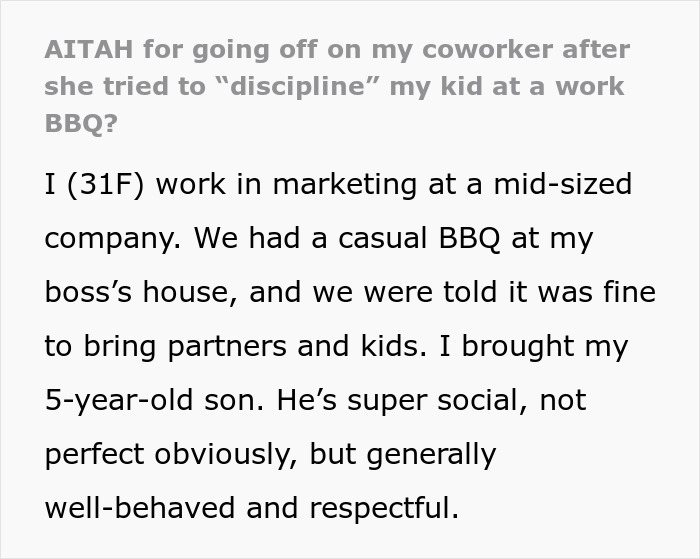
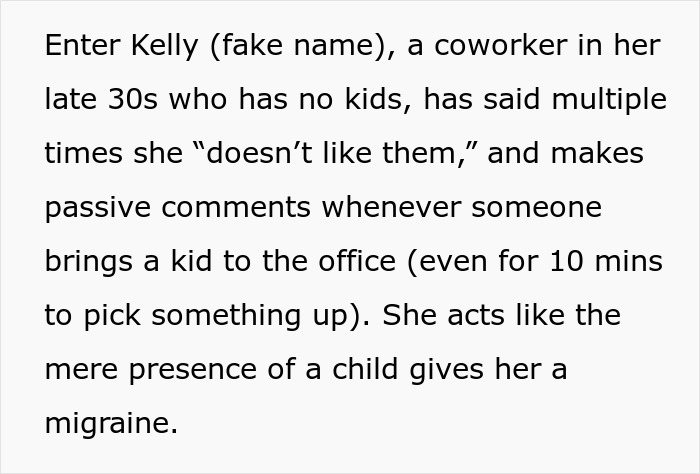
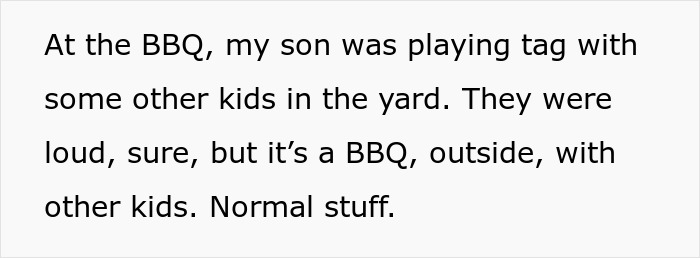



Image credits: krakenimages.com / freepik (not the actual photo)
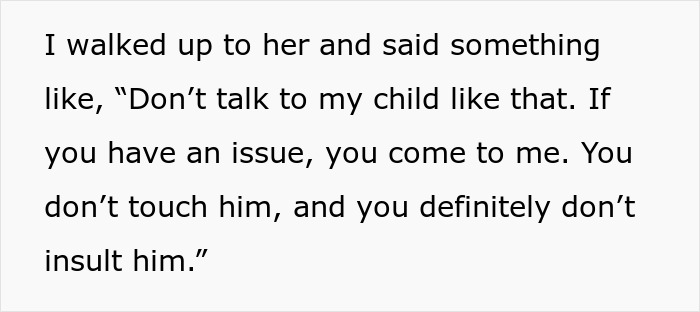
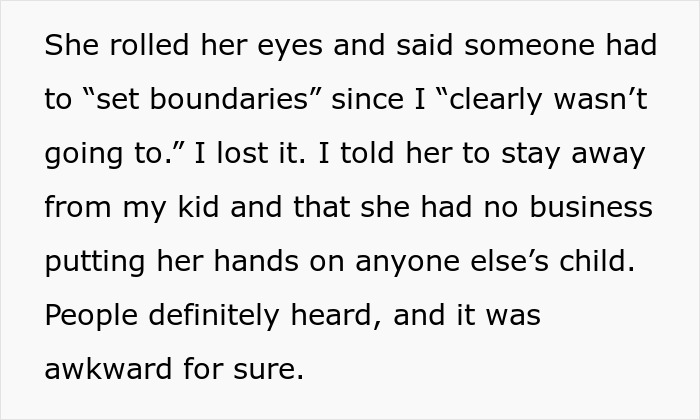
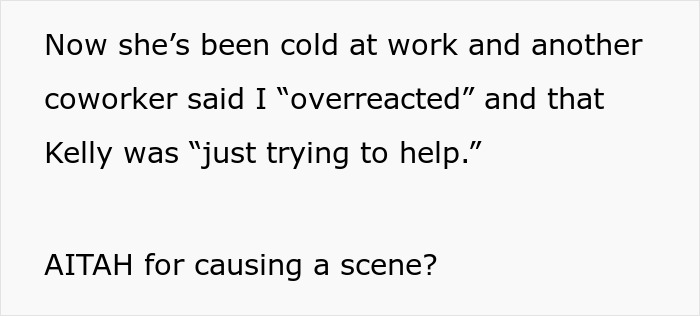
Image credits: Desloucado
In most cases, disciplining someone else’s child is absolutely inappropriate, the expert says

Image credits: gzorgz / freepik (not the actual photo)
Conscious parenting coach Blanka Molnar tells us that in most cases, disciplining someone else’s child is absolutely inappropriate. “Nobody knows you, your parenting style and principles, or your child’s situation, needs, etc.”
However, there are certain scenarios where disciplining by somebody else becomes necessary, says Molnar. “Situations like when somebody’s safety is at risk, when the disciplining person is in a caregiver role, or when there is a clear agreement and consent between the parents and the person disciplining,” she explains.
Aside from these, individuals should typically refrain from telling off children that aren’t their own. However, some people feel entitled to discipline other people’s kids due to cultural or generational norms, lack of boundaries, feeling emotionally triggered or involved in the situation, feeling obliged to express their own values, or acting as an assumed authority in the heat of the moment, suggests Molnar.
“In some cultures or among former generations (particularly baby boomers), it is more acceptable to get involved and share opinions on how others should discipline their kids,” she explains.
Meanwhile, less self-aware people might not recognize when they step over the boundaries of others. “Some people may carry unresolved traumas and feel triggered in a situation to the point that they feel an urge to intervene, for example, in a case of bullying,” adds Molnar. Because a lot of us want to be listened to and heard or even assume authority, we can express that through disciplining others’ kids, too.
“At the end of the day, it is the parents’ job to protect the child, even when the child is disciplined by others”

Image credits: dimaberlin / freepik (not the actual photo)
When parents see their kids being disciplined by others, Molnar says they have every right to protect and defend their children, but it has to be done in a respectful manner.
“At the end of the day, it is the parents’ job to protect the child, even when the child is disciplined by others. I would recommend having a conversation with the person stepping in. If possible, I suggest taking three deep breaths (if the chat is immediate) to calm the nerves and triggers and then kindly asking the person to chat with you instead of disciplining the child. You can ask their side of the story and what the reason was that they felt called to get involved.”
Besides, instead of overstepping and disciplining others’ kids, people can find alternative ways to express discomfort with a child’s behavior. Molnar suggests reaching out to the parents or primary caregiver and having an open and honest chat with them.
“Initiate the conversation from an emotionally calm space and try to keep an emotionally neutral tone as much as possible. Use ‘I’ sentences instead of pointing fingers or blaming parents to avoid triggering defensiveness. Instead of ‘Your child makes me angry when they hit their classmates,’ use ‘I do not feel comfortable when your child hits others. My job is to keep everyone in the classroom safe.’”
Some readers supported the mom





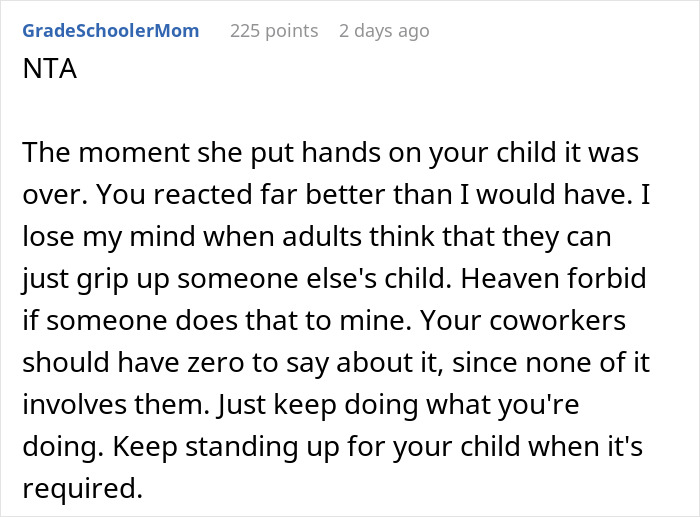
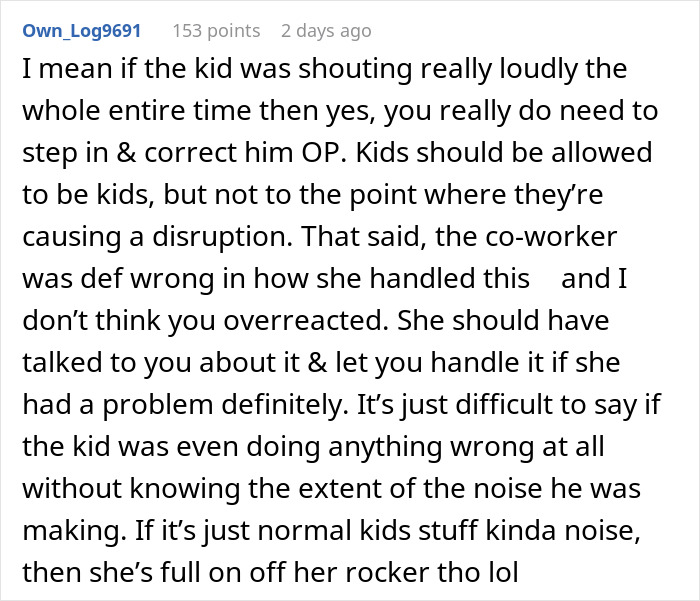



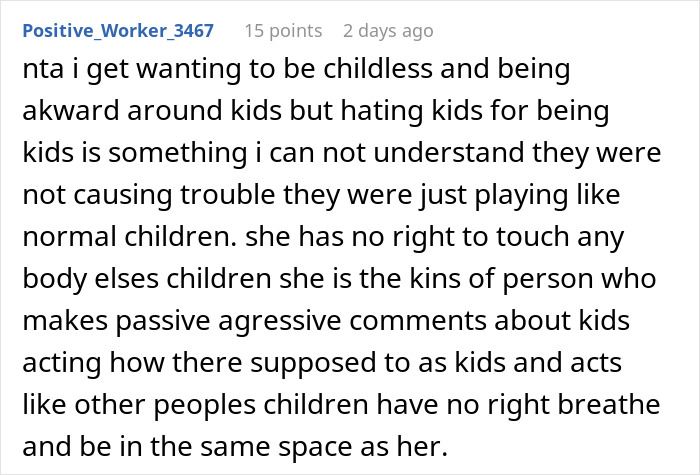

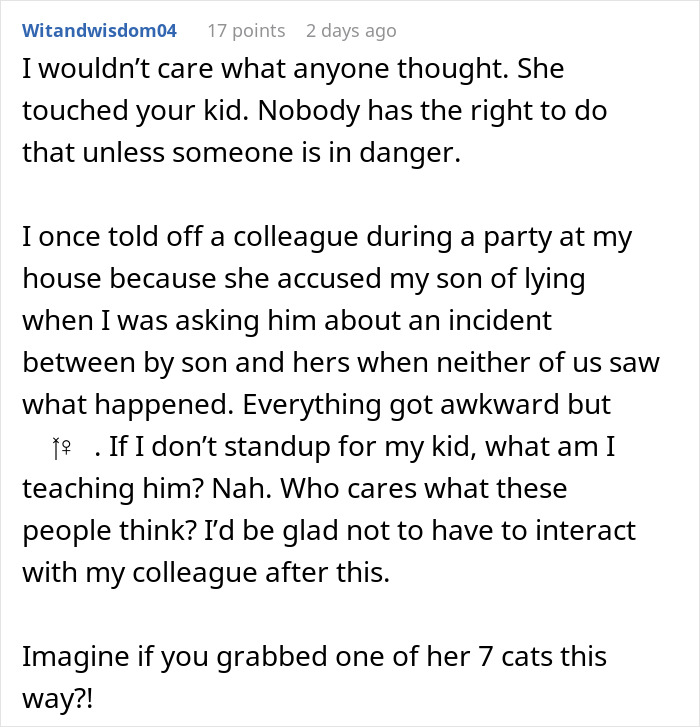
While some believed she should’ve watched her child better
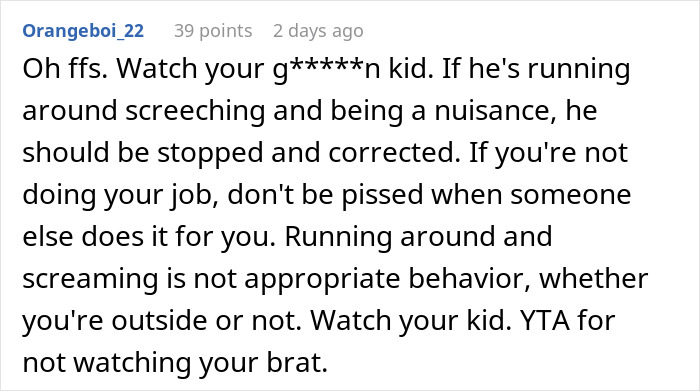

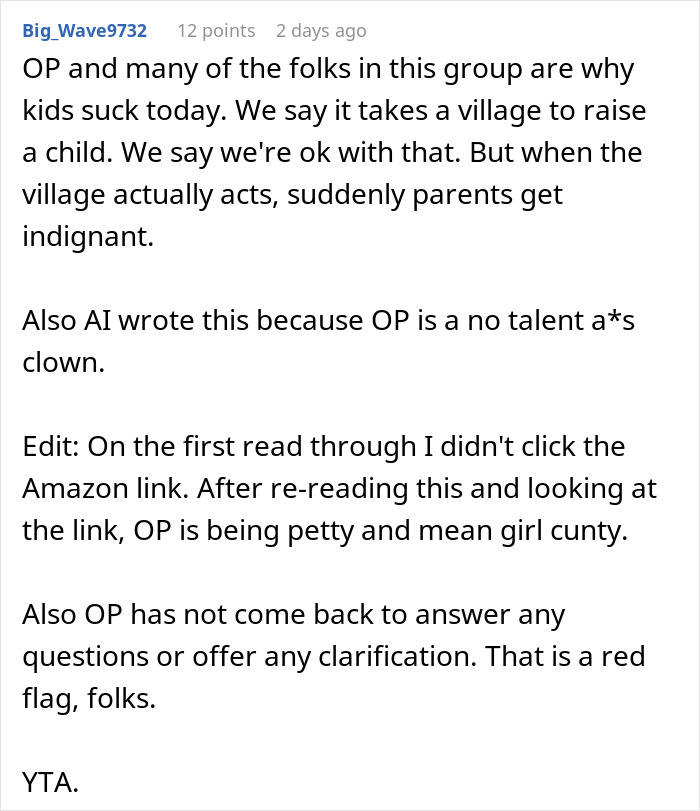
Others thought that both women were in the wrong
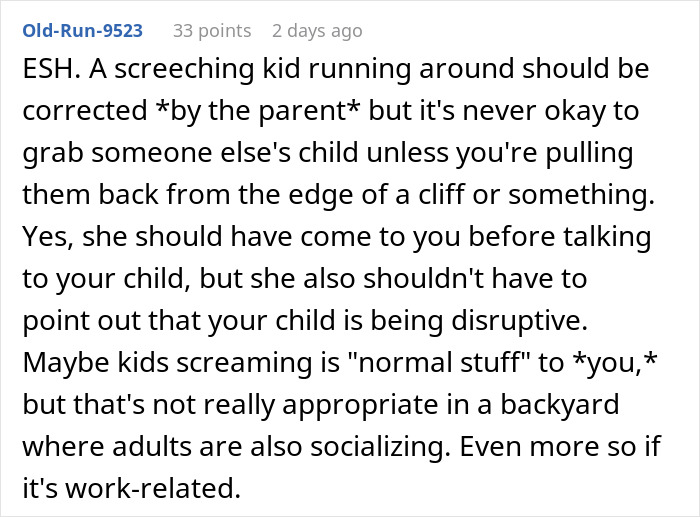


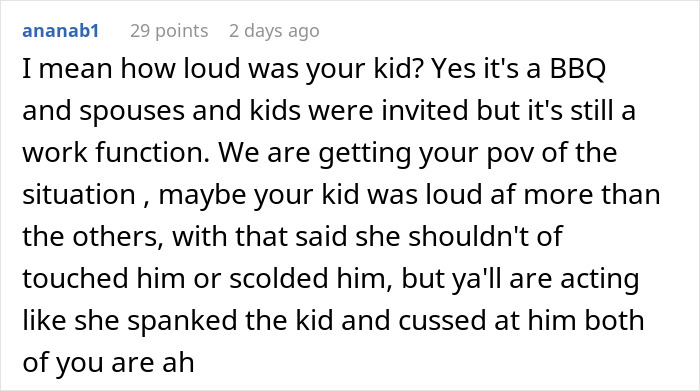
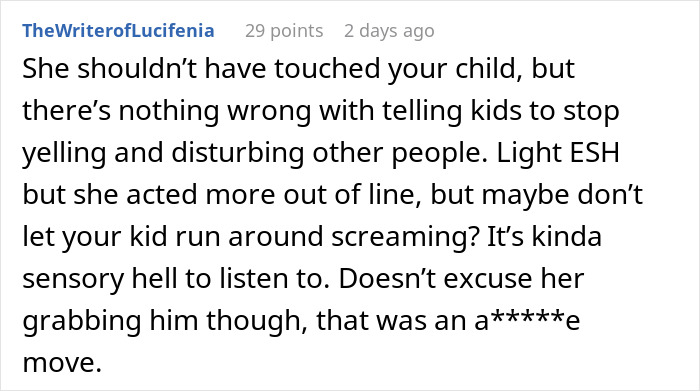
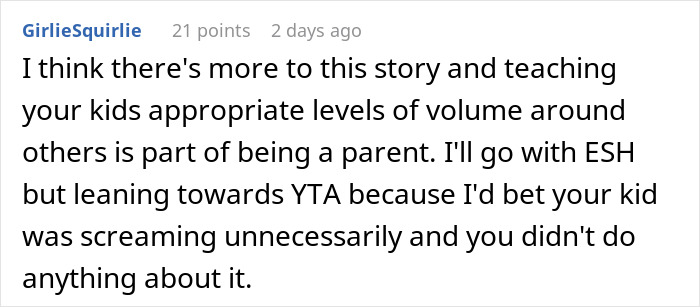
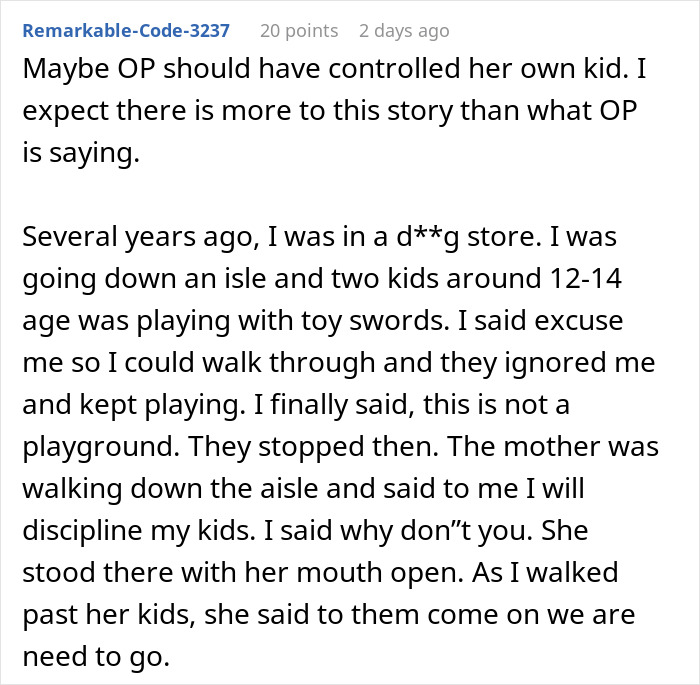
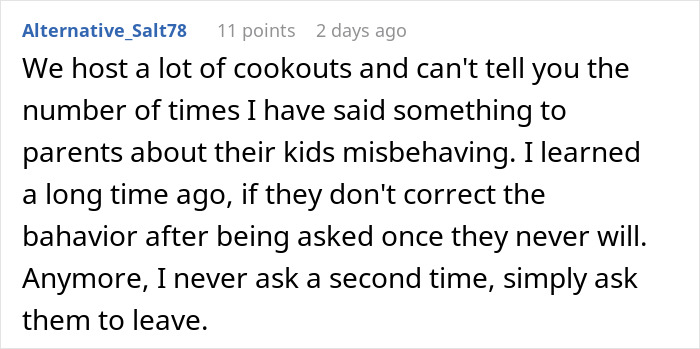

from Bored Panda https://ift.tt/sopSnV8
via IFTTT source site : boredpanda